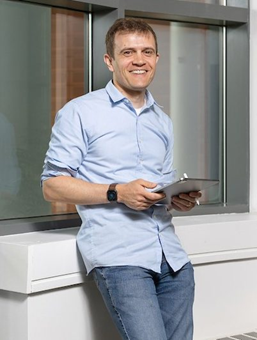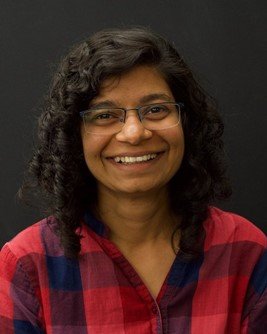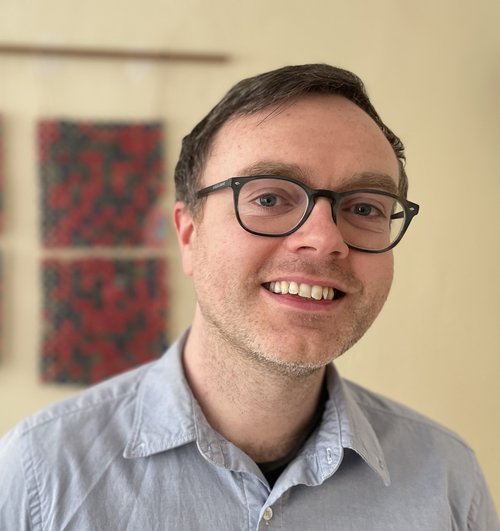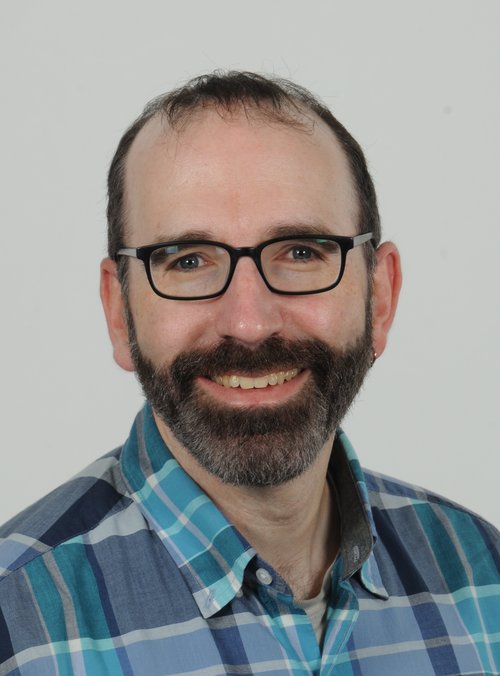The Physics department in the College of Arts and Sciences welcomed four new scholars in 2024. They each bring exciting research programs that will expand the frontiers of knowledge we are exploring at Syracuse, and they will provide our students with new opportunities to learn fundamental science. Let us introduce you to the newest members of our community:
Collin Capano, Research Associate Professor: Leading Innovation in Open-Source Collaboration and Gravitational Wave Astronomy

Returning to his alma mater, Dr. Collin Capano ’05, G’11 brings his expertise in gravitational-wave astronomy and serves as the first Director of the Syracuse University Open Source Program Office (OSPO). In this role, Dr. Capano drives innovation by fostering collaboration and creating an open-source ecosystem across disciplines. His work in astrophysics—specifically through the study of black holes and neutron stars—seeks to answer profound questions about the universe, such as: What happens near a black hole?
A recipient of both the Special Breakthrough Prize in Fundamental Physics and the Gruber Cosmology Prize, Dr. Capano played a pivotal role in the first detection of gravitational waves in 2016, which was a landmark achievement in astrophysics. His leadership in OSPO further reinforces Syracuse University's commitment to interdisciplinary research and collaboration.
Nidhi Pashine, Assistant Professor: Innovating with Mechanical Metamaterials

Dr. Nidhi Pashine’s groundbreaking work in mechanical metamaterials brings an exciting experimental dimension to our department. Her research explores the unique properties of disordered systems and the potential to design materials with novel functionalities. With a focus on cultivating a supportive and inclusive research environment, Dr. Pashine inspires students to embrace critical thinking and the joy of scientific discovery.
A 2023 Rising Star in Physics recognized by UC Berkeley, Dr. Pashine’s impressive background includes a Ph.D. from the University of Chicago and postdoctoral research at Yale University. Her vision for innovative materials is set to redefine the possibilities within soft condensed matter physics.
Colm Kelleher, Assistant Professor: Bridging Biophysics and Embryology

With a unique interdisciplinary approach, Dr. Colm Kelleher’s research uncovers the intricate biophysics of oocytes and embryos. His lab merges theoretical physics with clinical IVF techniques, fostering a collaborative spirit among researchers. Dr. Kelleher’s dedication to teaching and teamwork ensures his students gain both expertise and the ability to tackle complex problems.
Dr. Kelleher, who earned his Ph.D. from New York University, brings with him a wealth of experience from Harvard University, where he was honored with the White Prize for Excellence in Teaching. His creative work exemplifies the department’s mission to explore the interconnectedness of science.
Alexander Maloney, Professor: Pioneering Quantum Science

Dr. Alexander Maloney’s arrival as the Kathy and Stan Walters Endowed Professor of Quantum Science marks a significant milestone for our department. A leader in fundamental theoretical physics, Dr. Maloney’s work spans quantum information theory, black holes, and cosmology. He is the inaugural director of the newly established Institute for Quantum and Information Science which will connect faculty and students from across the College of Arts and Sciences and the College of Engineering and Computer Science.
A former James McGill Professor of Physics at McGill University and recipient of the John David Jackson Award for teaching excellence, Dr. Maloney exemplifies the synergy of research and education. His leadership as Director of the Institute for Quantum and Information Science will inspire the next generation of physicists and create new opportunities for students to engage in cutting-edge research in this discipline.
Together, these outstanding faculty members are redefining what is possible in physics. Their passion for discovery and dedication to mentorship ensure that Syracuse University remains at the forefront of scientific exploration. Please join us in welcoming Drs. Capano, Pashine, Kelleher, and Maloney to our vibrant academic community!
